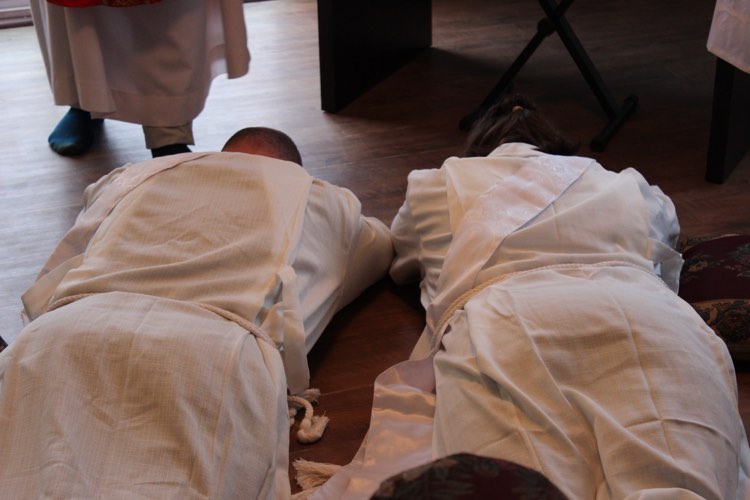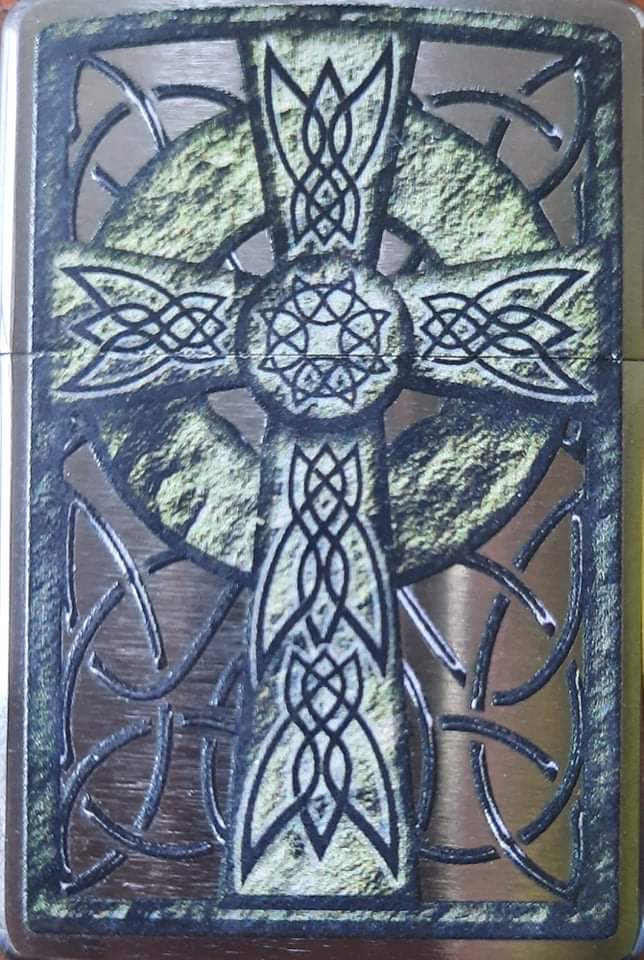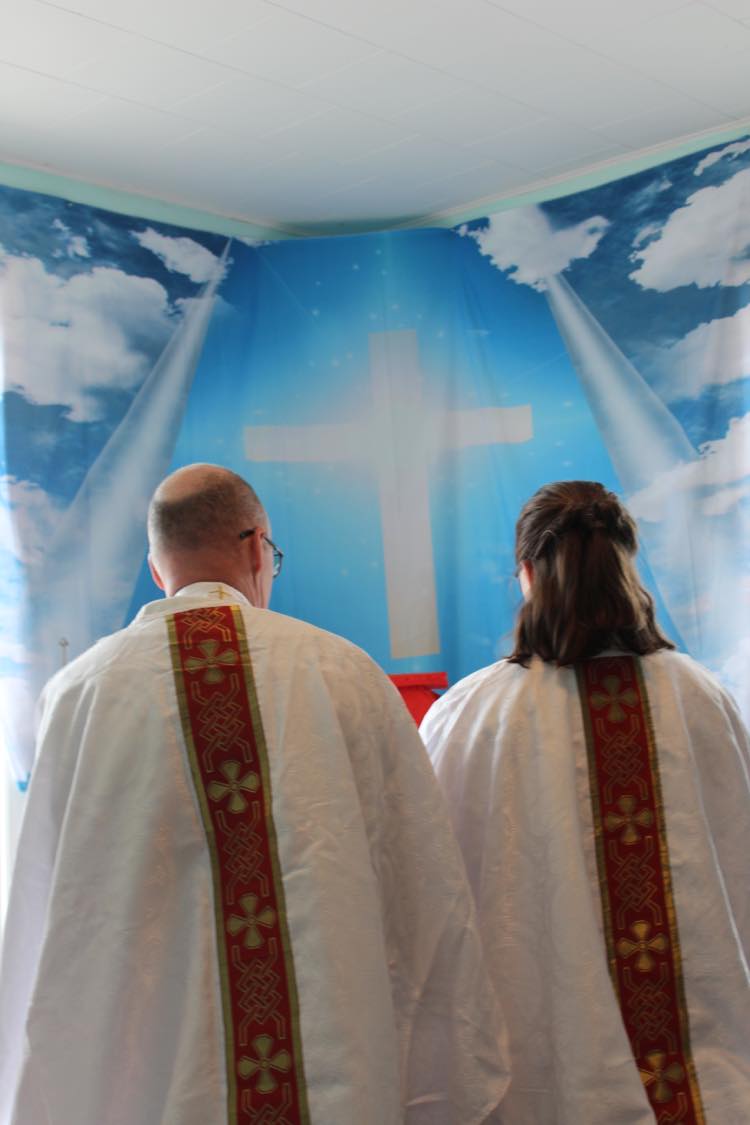- Home
- simply catholic
- Catholic Sacraments
- Sacraments Are Only for the Living
Simply Catholic and Welcoming You
Catholic Sacraments are
Only For The Living
All Catholic Sacraments are only to be given to the Living
Yes, Catholic doctrine generally holds that sacraments are intended for the living and are effective when celebrated, not for the dead.
Here's a more detailed explanation:
- What are Sacraments?
The Catholic Church views sacraments as "efficacious signs of grace, instituted by Christ and entrusted to the Church, by which divine life is dispensed to us". They are visible rituals that convey God's invisible grace. - The Seven Sacraments:
There are seven sacraments: Baptism, Confirmation, Eucharist (Holy Communion), Penance (Reconciliation), Anointing of the Sick, Holy Orders, and Matrimony. - Sacraments are only for the Living:
The sacraments are designed for people to engage in a relationship with God, to grow in faith and grace, and to participate in the life of Christ. They are meant to be celebrated in the present, not for the benefit of those who have died. - Baptism and Penance:
While Baptism and Penance are often referred to as "sacraments of the dead" in the sense that they can bring souls back to life with God, the other five sacraments are known as "sacraments of the living" because they are for those who are engaged in the Christian faith journey and actively participating in the Church's life. - Effect of Sacraments:
The Catholic Church teaches that the sacraments convey grace through the very act of their administration ("ex opere operato"). However, the recipient's disposition, or their state of faith, is also needed for the grace of the sacrament to be effective.
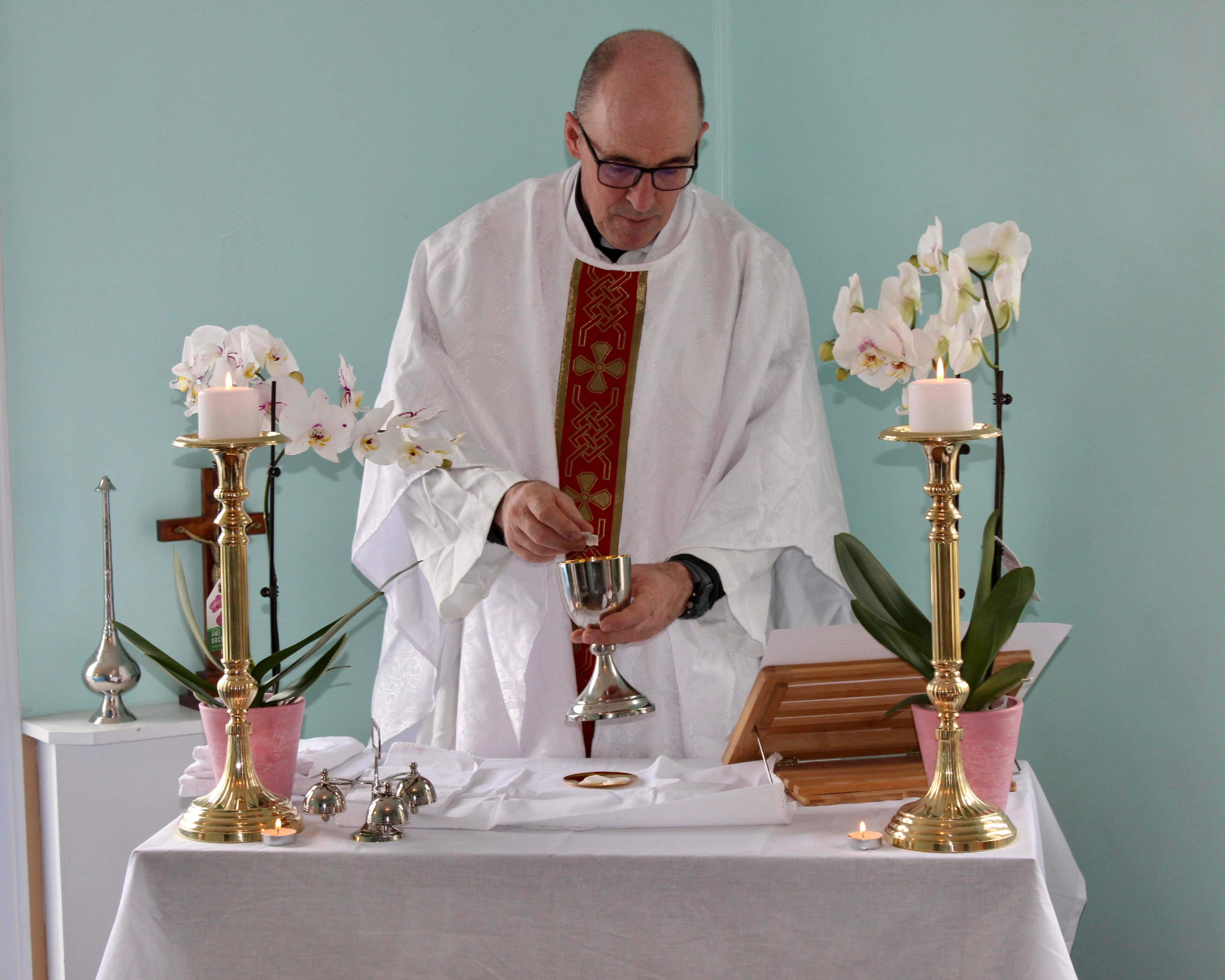
Celebrating the Sacrament of the Holy Eucharist
Sacraments are only for the living including the "Last Rites"
So yes, only a living person can receive a sacrament, including the sacrament of the sick. The problem here is the misleading term “Last Rites.” Unfortunately, many people continue to believe that the Catholic Churches have some sort of “last sacrament” or “sacrament for the dead.” We don’t. Indeed, we’ve never had such a thing. By their very nature and intent, sacraments are only for the living.
So how did we get “Last Rites”? This popular term emerged from an incomplete translation of the official Latin text of the old Roman Ritual, which contains the official prayers for the sacraments and other rituals. The Latin version of the 1964 Roman Ritual has a section labeled: Ritus continnuus infirmum muniendi sacramentis extremis.
The official English translation renders the Latin as “The last rites as given without interruption.” However, the Latin text does not contain the term “Last Rites.” Even worse, the English translation omits the key Latin phrase that means “for the fortifying/strengthening of the sick.” The Latin text says nothing at all about death or dying. All the prayers in the Ritus continuus/Last Rites, refer to the living person, not a corpse.
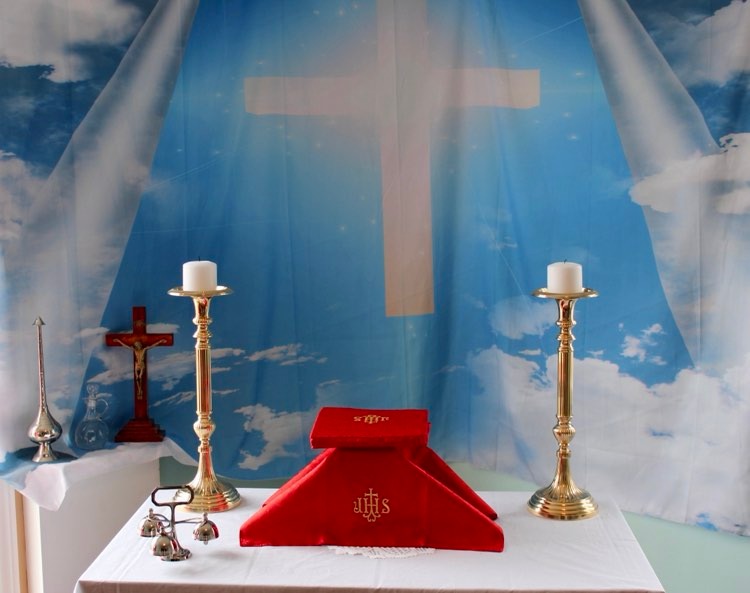
A simple Home Altar
So, if Sacraments are only for the living, What Can We Do For The Dead?
The Decree of the Apostolic Penitentiary says, “The Church prays for those who find themselves unable to receive the Sacrament of the Anointing of the Sick and of the Viaticum, entrusting each and every one to divine Mercy by virtue of the communion of saints and granting the faithful a Plenary Indulgence on the point of death, provided that they are duly disposed and have recited a few prayers during their lifetime (in this case the Church makes up for the three usual conditions required - more on this later). For the attainment of this indulgence the use of the crucifix or the cross is recommended.”
If there is no cross or crucifix in the house to place in the room of the dying person, no anxiety is to be felt, as a recommendation is not a condition. “Duly disposed” means that a person repents of their sins and desires the forgiveness of God.
In simplest terms
If a loved one is dying and no priest is available;
- Say an Act of Contrition - with them or for them
- Give them the Holy Eucharist, if it is at all available. Depending on their condition this can be even the tiniest portion on or under their tongue.
- Say the Holy Rosary for them or with them. Even a Hail Mary and an Our Father will suffice if time is short.
Spiritual Communion
If the Eucharist is not available then invoke Spiritual Communion by reciting or making up a simple prayer such as;
My Jesus I believe that You are present in the Holy Sacrament.
I love You above all things and I desire to receive You into my soul.
Since I cannot at this moment receive You sacramentally, come at least spiritually into my heart.
I embrace You as if You were already there and unite myself wholly to You.
Never permit me to be separated from You.
Amen.
If they pass or you find them passed before any of these things can be done, take heart The Decree of the Apostolic Penitentiary applies.
(Also remember: All the rites of the Catholic Church are of equal dignity and equally valid. Attendance at a different rite fulfills the obligation. The Catholic Church is truly universal since it unites so many diverse rites, whose members share a common faith. So when your priest is not available, a priest from any Catholic Rite can step in with equal validity. There are options.)
A plenary indulgence is a Catholic sacrament that removes all temporal punishment for sins that have already been forgiven. It's also known as "The Jubilee".
How it works
- A plenary indulgence is a special type of indulgence that removes all temporal punishment for sins.
- It makes the soul as pure as a newly baptized infant.
- It's based on the merits of Jesus, the Blessed Mother, and the saints.
- It's closely linked to the Sacrament of Reconciliation (confession).
Who can receive it
- Individuals can gain plenary indulgences for themselves and also for the deceased.
- To gain a plenary indulgence, individuals must meet certain conditions, such as making a confession and receiving communion.
Other types of indulgences
- A partial indulgence covers part of the punishment due for sins.
- The church uses the power of the Apostolic See to remove temporal consequences.
What Are Indulgences?
Even though confessed and forgiven sins will not send a person to hell, consequences remain to be paid on earth or in purgatory. An indulgence frees the recipient from those consequences. Reception of an indulgence always springs from sincere repentance, the desire to live a holy life, reception of the sacraments of Penance and Holy Communion as soon as possible and prayer for the Holy Father. An indulgence cannot be bought, nor can one be obtained by going through the motions without sincerity.
A partial indulgence covers part of the punishment due for sins; a plenary indulgence removes all of it. Both kinds of indulgence come from the merits of Jesus, the Blessed Mother and the saints. These “merits” are the opposite of “demerits.” They are spiritual fruits accumulated through holy living.
To grant indulgences, the Church draws on a great treasury of merits: the infinite value of Christ’s Passion, death and Resurrection, and the prayers and good works of the Blessed Virgin Mary and the saints – including all of those on earth who live holy lives.
How to gain plenary indulgence in the Catholic Church, the living must fulfill five conditions: confession, reception of the Eucharist, prayer for the Pope's intentions, be free from all attachment to sin, and perform the specified pious work associated with the indulgence.
Here's a more detailed breakdown of each condition:
- Sacramental Confession: You must have validly received the sacrament of Reconciliation (confession).
- Receive the Holy Eucharist: You must receive Holy Communion.
- Prayer for the Pope's Intentions: Pray for the Pope's intentions. A suitable prayer may be a brief prayer for the church and its missions. Those who do not fall under the Papal authority may pray for the Divine Commission of Christ.
- Be Free from All Attachment to Sin: You must be free from all attachment to sin, including grave sins.
- Perform the Specified Pious Work: You must fulfill the specified pious act, such as visiting a church for adoration, praying the rosary or other prayers, or receiving the papal blessing, depending on the specific conditions of the indulgence.
For the Dead
Issued by the Sacred Apostolic Penitentiary, 1968
The Moment of Death (In articulo mortis). PLENARY INDULGENCE. EXCEPTION TO THE THREE CONSTANTS. (Verbatim recitation of the grant follows:) "To the faithful in danger of death, who cannot be assisted by a priest to bring them the sacraments and impart the Apostolic Blessing with its plenary indulgence (see can. 468, Sec.2 of Code of Canon Law), Holy Mother Church nevertheless grants a plenary indulgence to be acquired at the point of death, provided they are properly disposed and have been in the habit of reciting some prayers during their lifetime. The use of a crucifix or a cross to gain this indulgence is praiseworthy." The condition: 'provided they have been in the habit of reciting some prayers during their lifetime' supplies in such cases for the three usual conditions required for the gaining of a plenary indulgence." The plenary indulgence at the point of death can be acquired by the faithful, (Meaning anyone my invoke this indulgence for anyone who is dying or dead) even if they have already obtained another plenary indulgence on the same day."
Recent Articles
-
Ordination, incardination and dismissal of clergy
Mar 03, 25 06:47 PM
Overview of Ordination to Holy Orders, incardination and dismissal of clergy -
Catholic Last Rites
Mar 03, 25 06:41 PM
An explanation of the Catholic Last Rites and Anointing of the Sick -
Catholic-Confession
Mar 03, 25 06:37 PM
Full breakdown of the Catholic Confession Sacrament of Reconciliation
